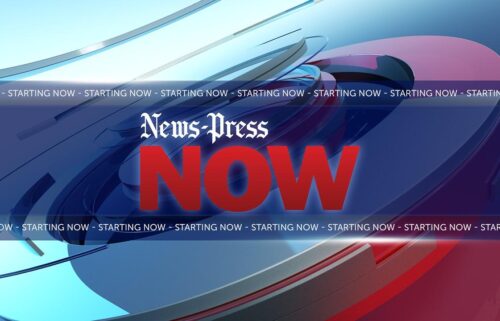What are the major issues in Australia’s election Saturday?

By ROD McGUIRK
Associated Press
MEBOURNE, Australia (AP) — Australians vote Saturday in general elections being dominated by the soaring cost of living, the economy, energy and China.
Affordable housing is in short supply, interest rates remain high and the major political parties are starkly divided on how to wean the nation off fossil fuel-generated electricity.
The major parties also differ on how to deal with China, which is both Australia’s largest trading partner and its greatest strategic threat.
Here’s what to know about the main issues:
Surging inflation
Australians have endured one of the sharpest rises in the cost of living in recent history and the current government has been at the helm through the worst of it.
Prices of eggs surged 11% last year and beer rose 4%, according to government figures. Average rents rose 4.8% last year after a 8.1% spike in 2023, property analyst CoreLogic said.
The central bank’s benchmark interest rate rose from a record low 0.1% to 0.35% two weeks before Prime Minister Anthony Albanese’s center-left Labor Party came to power in 2022’s elections.
The rate has been raised a dozen times since then, peaking at 4.35% in November 2023. Annual inflation peaked that year at 7.8%.
The central bank reduced the inflation rate by a quarter percentage point in February to 4.1% in an indication that the worst of the cost of living crisis had passed. The rate is widely expected to be cut again at the bank’s next board meeting on May 20 due to international economic uncertainty generated by U.S. President Donald Trump’s tariffs policies.
Scarce and expensive housing
Inflation has put some builders out of business, exacerbating a shortage of housing, which in turn has inflated rents.
The government has provided tax cuts and assistance for some rent and energy bills, but critics argue government spending has contributed to maintaining elevated inflation.
Albanese promised in 2023 to build 1.2 million homes through incentives over five years starting in the middle of last year, an ambitious target in a country of 27 million people. Early building approval figures suggest his government would miss that target.
Labor has vowed to reduce the deposit first time home buyers will be required to pay from 20% to 5% with the government becoming guarantor for the difference.
The conservative opposition Liberal Party has promised to reduce competition for housing by reducing immigration. It’s also promised to allow Australians to spend money held in their compulsory workplace pension funds, known as superannuation, on down payments to buy a home.
The opposition has also pledged to make mortgage interest payments tax deductible for many first home buyers.
Many economists argue the rival policies would both inflate home prices while achieving little to increase the supply of housing.
Different paths to net zero
Both parties agree on one goal: to achieve net zero emissions by 2050.
Albanese’s government was elected in 2022 with a promise to reduce Australia’s greenhouse gas emissions by 43% below 2005 levels by the end of the decade and achieve net zero by 2050.
The opposition has promised to build seven government-funded nuclear power plants across Australia, the first providing electricity in 2035.
The government argues Australia‘s existing coal and gas-fired generators won’t last long enough to meet the nation’s needs until nuclear power arrives. It plans to have 82% of Australia’s energy grid powered by renewables by 2030.
The opposition argues the government’s policy of replacing coal and gas with renewable energy sources including wind turbines and solar cells is unachievable, and would reduce investment in clean energy technologies.
The opposition would rely on more gas to generate electricity until atomic power was established. It would not set a new target for 2030 before the election.
Ties with China
Trade and diplomatic relations between Australia and China plunged to new depths in 2020 after the previous conservative Australian government demanded an international inquiry into the origins of and responses to the COVID-19 pandemic.
Beijing barred minister-to-minister contacts with Australia and imposed a series of official and unofficial bans on commodities including coal, wine, barley, wood and lobsters that cost Australian exporters up to 20 billion Australian dollars ($13 billion) a year.
The thaw started almost immediately with the election of the Labor Party in 2022. Chinese Premier Li Keqiang wrote to congratulate Albanese on his election victory within days.
All the trade barriers were gradually lifted and Albanese met President Xi Jinping during a state visit to Beijing in 2023.
Albanese often says about China: “We will cooperate where we can, disagree where we must and engage in the national interest.”
Opposition leader Peter Dutton, a longtime critic of China, has claimed that bilateral relations would improve even further with a tough and uncompromising approach. He has accused Albanese of self-censorship to avoid offending Beijing.
“Australia must be willing to criticize any nation whose behavior imperils stability in the region, and that’s what a coalition government I lead will do confidently and in concert with like-minded countries,” Dutton told the Lowy Institute international policy think tank in Sydney in March.



